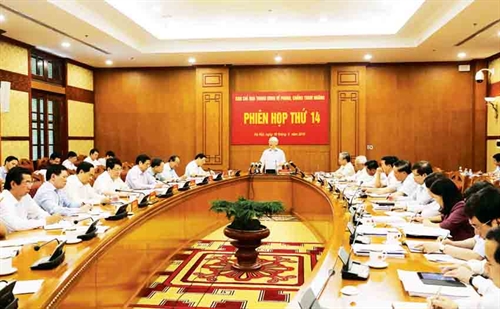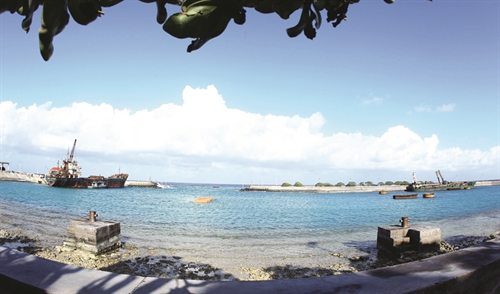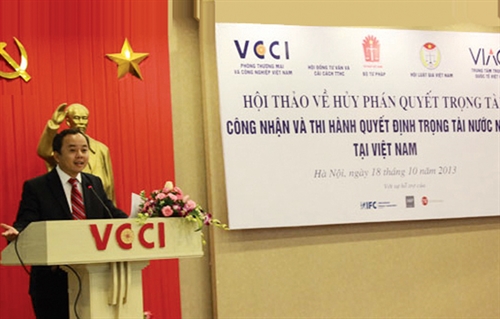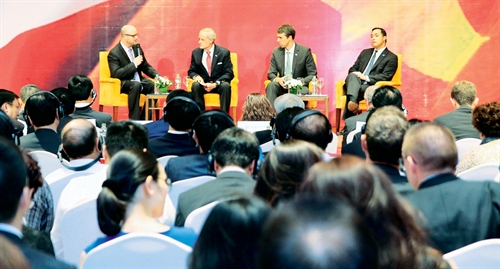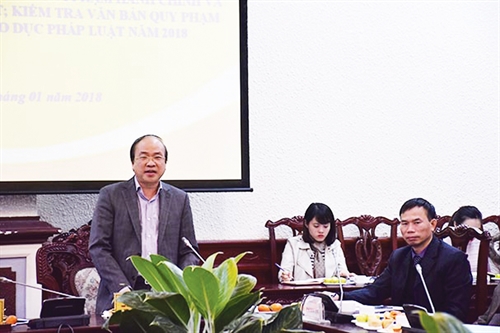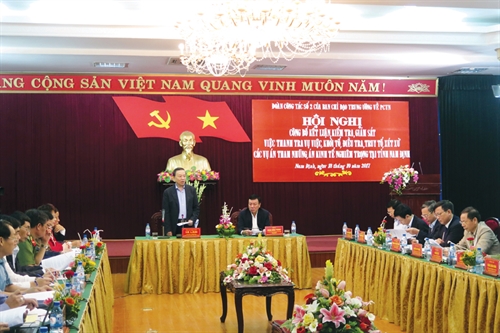Lauren Sun
Russin & Vecchi[1]
Background
Three types of dispute qualify for arbitration in Vietnam. Firstly, disputes involving “commercial activity” can be arbitrated. Commercial activity is any “activity with a profit-making purpose comprising the purchase and sale of goods, provision of services, investment, commercial enhancement, and other activities for profit-making purposes.”[2] Secondly, arbitration is allowed if one party to the contract is engaged in a commercial activity, say, a vendor in a dispute with a customer. Finally, the law requires that some disputes be settled by arbitration. Disputes that are specifically stipulated by law also qualify for arbitration. For example, contracts that relate to investments under the 2014 Law on Investment[3], qualify for arbitration. Arbitration is not a general right. Use of arbitration is subject to agreement. That is, the parties have to agree to arbitrate. Agreement to arbitrate can be made in any written form. The agreement may be part of an underlying agreement that is itself in dispute or it may be a separate agreement to arbitrate. Any modification, extension, termination, or invalidity of the contract will not affect the arbitration clause. This follows the separability doctrine of the New York Convention.[4]
Types of arbitration
There are two types of arbitration, foreign and domestic. Foreign arbitration is an arbitration process that is governed by a foreign law, e.g., arbitration at the Singapore International Arbitration Center whose rules of arbitration are governed by Singaporean law. On the other hand, domestic arbitration is arbitration governed under Vietnam’s Law on Commercial Arbitration, e.g., at the Vietnamese International Arbitrator Center (VIAC) whose rules of arbitration are governed by Vietnamese law. Accordingly, arbitral awards pronounced through a foreign arbitration mechanism are foreign awards and arbitral awards pronounced through a domestic mechanism are domestic awards. That is, the actual place where the arbitration is held is not relevant. Nor, oddly, is it relevant whether foreign or domestic law is chosen to resolve the dispute. However, before being enforced in Vietnam, a foreign arbitral award must be recognized by a Vietnamese court.
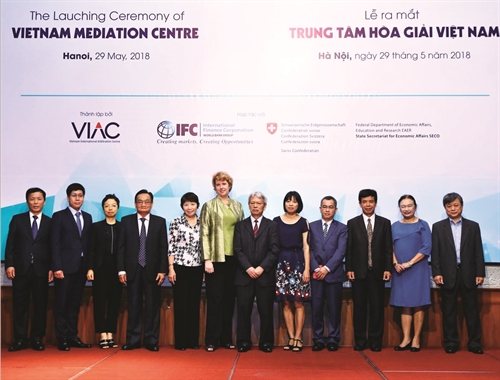 |
| Mediators of the Vietnam Mediation Center at its launching ceremony held in Hanoi on May 29 __Photo: Minh Quyet/VNA |
Considerations to keep in mind
The benefits of domestic arbitration as a mechanism to resolve disputes, should not be dismissed, even by persons inclined to present before an international arbitration forum. While foreign companies often opt for international arbitration, domestic arbitration forums provide significant benefits including: (i) higher probability of enforcement in Vietnam, (ii) decreased legal and administrative costs, and (iii) a wide range of options in the selection of a forum, skills and arbitrators, and governing law. Domestic arbitration generally provides great flexibility and the autonomy of the parties to contract for the type of tribunal they desire.
Domestic arbitration awards have higher enforcement rates in Vietnam
One major concern of foreign arbitral awards is that they will not, without more, be recognized by a Vietnamese court. Foreign arbitral awards require a filing with the Ministry of Justice (MOJ). This is the first step toward recognition. Within several days the MOJ must send the foreign award to the appropriate People’s Court which will determine whether it will be recognized. Decisions made by a People’s Court regarding recognition are final and cannot be appealed. Recognition of foreign arbitral awards can be rejected by a court in Vietnam: (i) when they violate procedural requirements (format, representation, notification, and authorization), or (ii) when they violate “fundamental principles of Vietnamese law.”[5] Reviews in Vietnam of foreign arbitral awards are generally intended not to relate to the merits, but revolve around whether procedural and provisional requirements have been met. There is no timeframe within which the court must act.
A domestic arbitral award, on the other hand, comes into force when it is issued and without any need to be recognized. The Court may set aside a domestic arbitral award when there is a request by one of the parties and when the legal grounds, if proved, are sufficient to set aside a domestic award. However, the grounds to refuse recognition of a domestic award are limited to traditional issues such as there is no agreement to arbitrate or the arbitration agreement is invalid[6].
The courts have come to the view that they need to respect domestic arbitral awards and strictly evaluate any grounds suggested for them to refuse to enforce domestic awards. This was evident in a case in which a Vietnamese court refused to set aside a domestic arbitral award against one of the largest state-owned enterprises in the country. A request was made by Vinalines to set aside a domestic award on four grounds: (i) The award was contrary to fundamental principles of Vietnamese law, (ii) forged evidence was used in the proceeding, (iii) not all related parties were allowed to participate, and (iv) issuance of another arbitral decision after the arbitral award. All four grounds which were argued by the Vietnamese company to the Vietnamese court were denied. Although the matter involved domestic arbitration, the court avoided any temptation to examine the award by referencing, for example, principles of Vietnamese law.
The court in Vietnam clearly observed that when faced with a request to set aside a domestic arbitral award, the courts may not consider the merits of the dispute, but may only determine if there is a valid ground to set aside the domestic award as provided in the Law on Commercial Arbitration.[7]
Recently, courts have elaborated on the concept of “fundamental principles of Vietnamese Law” and have considered what the concept includes. The elaboration presents a two-prong conjunctive test which requires: (i) that the principle of Vietnamese law breached by the award violates “[a] basic principle on conduct, the effect of which is overriding in respect of the development and implementation of Vietnamese law” and (ii) that the award “violates the interests of the government, and the legitimate rights and interests of third parties.”[8] If both of these tests are met, a court must set aside the award whether domestic or foreign.
Contrary to the more positive record of enforcement of domestic awards, recognition of foreign awards can pose a significant hurdle. Regardless of the choice of law stated in a particular contract, “the legal capacity of a foreign legal entity must be determined by following the laws of Vietnam.”[9] This language, in reality, is narrow. It refers only to the “capability” of a foreign entity not the organic law applied to the dispute. However, determining recognition, and perhaps prompted by a misinterpretation of this language, courts will sometimes compare Vietnamese law with the foreign law used to resolve the dispute, to determine whether an award should be recognized. Foreign awards in which foreign law is applied and which favor foreign companies are more likely to be perceived as biased and in violation of “fundamental principles of Vietnamese law.” While the Vietnamese government has urged courts to apply the rules selected by the party[10], recognition can still be problematic. In some circumstances, the merits of a case will be reviewed.[11] In other cases, courts may deny recognition because of concerns over whether the persons or entities who signed the arbitration agreement were authorized to do so.[12]
The Supreme Court made a statistical review of requests to the courts for recognition of foreign arbitral awards in cases decided between January 2005 and June 2014. Fifty-two requests were reviewed.[13] Of these 52 requests, 23 awards were recognized. In the city of Hanoi, as few as 18 percent of foreign arbitration awards were recognized while in Ho Chi Minh City almost 80 percent of awards were recognized. Because of the finality of these court decisions, it is especially problematic to enforce foreign awards in Vietnam.
Another challenge to recognition of a foreign award, is the possibility of delay. The Code of Civil Procedure requires that courts issue a decision regarding recognition and enforcement of a foreign award within 20 days[14]. There is a series of steps to reach decision and each step can result in delays. Delays can take as long as one or two years. While not every resolution of a petition takes this long, delay remains a possibility and should be a concern of companies when deciding between domestic and foreign arbitration.
In contrast, domestic arbitration awards governed by Vietnamese law are automatically recognized by courts, resulting in far less delay and expenditure of resources. Additionally, when the jurisdiction of a domestic tribunal is challenged, it seems that Vietnamese courts will rarely interfere. In 2015, there were 13 requests to challenge awards made by the VIAC, and none succeeded.[15] In addition, without a long recognition and enforcement process, parties in domestic arbitration may maximize the chance to reach an amicable, negotiated resolution.[16]
Domestic arbitration forums and arbitrators result in lower costs
Generally speaking, international arbitration has a significantly higher cost than domestic arbitration. Administrative fees, costs of arbitrators, travel costs, expert consultation, and other necessary services for arbitration can run much higher in an international setting. For disputes of smaller value, the benefits of domestic arbitration will easily outweigh those of foreign arbitration. The following chart depicts the costs of domestic arbitration through VIAC[17] and foreign arbitration through the International Chamber of Commerce[18]. The costs listed represent the average cost of a three person arbitration panel based on the amount in dispute during the year 2017. These costs estimate the ICC administrative expenses and arbitrator fees. The numbers are estimates and are subject to slight variance. They do not include arbitrators’ expenses. (See Table 1)
Table 1
| Amount in Dispute (US dollars) | Vietnam International Arbitration Center Arbitration Costs[19] (US dollars) | International Chamber of Commerce Arbitration Cost (US dollars) |
| 4,400 | 720 | 10,690 |
| 44,000 | 3,770 | 21,390 |
| 220,000 | 11,520 | 55,240 |
| 440,000 | 17,570 | 87,250 |
| 2,200,000 | 46,600 | 219,950 |
| 4,400,000 | 70,800 | 288,330 |
| 22,000,000 | 158,770 | 464,240 |
| 100,000,000 | 458,7703 | 744,730 |
Domestic arbitration provides a wide range of options, such as forums, arbitrators, and governing law
In Vietnam, VIAC is the most frequently used dispute resolution forum. In 2017, 151 new cases were registered with the VIAC.[20] There are other arbitration centers to choose from including Asean International Commercial Arbitration Center, Hanoi Commercial Arbitration Center, Ho Chi Minh City Commercial Arbitration Center, Pacific International Arbitration Center, Can Tho Commercial Arbitration Center, and the East Arbitration Center. The centers each retain their autonomy and offer their own list of suggested arbitrators and have their own rules.
Generally, there are more choices than previously existed in the selection of arbitrators in a domestic arbitration. In the past, there were restrictions that limited arbitrators in domestic resolution forums to Vietnamese citizens whose names appeared on a specific list. These restrictions have been removed allowing for an increase in the diversity of arbitrators and expertise available for parties who wish to choose domestic arbitration. Arbitrators are only required to meet the following conditions: (i) they must have the legal capacity to act under the Civil Code; (ii) they must possess a university degree and five years of work experience in their area of study; and (iii) they must have a satisfactory criminal record.[21] Arbitrators in Vietnam now include people who span the globe and have fluency in numerous languages and experience in a vast range of foreign laws including US and European law. For example, VIAC maintains a list which is suggestive only, of over a hundred arbitrators ranging from managing partners of US based law firms to Vietnamese law professors.[22] Many are trained in non-legal disciplines with backgrounds in business, science, medicine, or other fields. Companies can preselect their arbitrators and name them in agreements that may later be arbitrated. So long as an arbitrator meets the requirements set forth by law, he or she can be chosen as an arbitrator for any disputes that may arise from commercial activity.
Parties who choose a domestic arbitration tribunal also have the option to use foreign law so long as the matter in dispute meets the requirement of having a “foreign element.”
Conclusion
There is a growing recognition among foreign companies that arbitration in Vietnam can offer significant benefits when compared to foreign arbitration. One must look at the parties to the dispute, the amount in controversy, cost, availability of qualified arbitrators, and the ease of enforcement in Vietnam. Upon examining and comparing these factors, domestic arbitration may indeed be the better option.-
